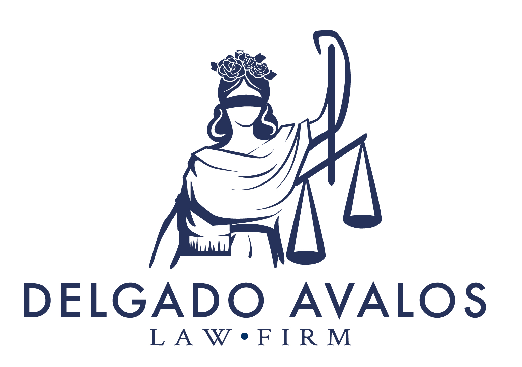What is VAWA?
The Violence Against Women Act (VAWA) protects women and men who are victims of abuse by a spouse, parent, or child. This legislation allows abused individuals to apply for permanent residence in the United States by petitioning on their own behalf without the requirement of their abusive relative.
If you think you may qualify for VAWA and wish to apply for your green card or have any other questions about immigration to the United States, please contact our skilled immigration attorney immediately. We will walk by your side as you navigate these complex immigration procedures and help you achieve your dream of U.S. citizenship.
How Does VAWA Help Women?
Under United States Citizenship and Immigration Services regulations, individuals seeking residence in the U.S. are generally required to submit a petition of a close relative who is a citizen, such as a spouse, parent, or child. However, VAWA guidelines permit immigrants to file “without your abusive family member’s knowledge or consent.”
The simplified process for abused individuals can make all the difference for someone in an abusive relationship. All too often, U.S. citizen family members use the petition process as a way of threatening their family member. For example, if the person came forward about the abuse, the family member could withdraw the petition, making it impossible for them to gain residence. Under VAWA, abuse victims may seek residence without the spouse’s permission.
Do I Qualify for VAWA?
While the title of the legislation refers to women, VAWA applies to any person who is seeking to immigrate and is a victim of abuse. This includes children, women, and men. The most important qualification under VAWA is that the person must be a close relative of a U.S. citizen and be suffering from abuse by the citizen spouse, child, or parent.
You must be living in the United States when filing a VAWA petition and have resided with the abusive family member at some point. You must also show that you are a person of good moral character, meaning you haven’t been convicted of serious crimes during the three years prior to your VAWA application.
Abused Spouse
If you are married to a U.S. citizen who abuses you, you could qualify for VAWA and seek immigration status without your spouse petitioning on your behalf. You may also qualify if you married a U.S. citizen in good faith and discovered they were married to someone else. Individuals who have already terminated a marriage may also be eligible for VAWA benefits.
Abused Children
Children whom a parent abuses may gain lawful permanent resident status if they can prove their parent-child relationship with their abusive U.S. citizen or lawful permanent resident parent.
Abused Parents
Parents who are abused by their adult children may also be eligible for VAWA benefits. They must prove that their child is a U.S. citizen or permanent resident and is at least 21 years old.
What Are the Benefits of the VAWA Law?
The Violence Against Women Act provides many benefits for immigrants in abusive family relationships. These include being able to self-petition for a green card. You can also gain immigration benefits for dependents, such as your minor children.
Self-Petition
Typically, a U.S. citizen or legal permanent resident must petition for their green card-seeking spouse, parent, or child. However, this does not work for people in abusive relationships where the citizen family member could refuse to sign the petition to threaten the victim into silence.
Thankfully, VAWA allows abuse victims to self-petition, meaning if they can prove their relationship to an abusive U.S. citizen or resident, they can submit the paperwork without the permission or knowledge of their abuser.
Benefits for Dependents
Another significant benefit under VAWA is the transfer of benefits to the qualifying individual’s dependents. This means that your minor children can apply for residence in the United States as long as you qualify, even if they are unrelated to your U.S. citizen spouse, child, or parent.
What Are the Steps of the VAWA Process?
Qualifying for VAWA and obtaining your green card can be complicated, but you don’t need to go through this legal process alone. Speaking with an immigration attorney is a crucial first step toward getting your immigration status adjusted through VAWA. Your lawyer can help you file the proper forms and provide the needed evidence to qualify for special benefits through VAWA.
Starting the VAWA Process
Gaining VAWA benefits and seeking residence in the United States starts with filing the proper petition. Form I-360 with USCIS starts the process, followed by submitting Form I-485 to adjust your immigration status.
Knowing how to fill out these forms and where to submit them can be tricky. If you make mistakes at this point in the process, your case could be delayed or denied. Please reach out to a trusted immigration attorney like at Delgado Avalos Law Firm, APC, for a caring, compassionate lawyer who will stand by your side throughout the process.
Required Documents
Submitting the required documents is also essential to prove you are related to a U.S. citizen. Some documents you may need include:
- Cover letter
- Form I-360
- Marriage certificate
- Birth certificate
- Medical records that show the abuse occurred
- Police reports
- Statements from friends and family that give an account of the abuse
Should You Hire Our Immigration Attorney?
When seeking resident status in the United States, you may worry about how a denial will affect you and your dependents. Please don’t feel that you have to walk down this challenging road alone. Contact our skilled immigration attorney for help getting your VAWA benefits by calling 805 793 0647.

 Call Us Now
Call Us Now Email Us Now
Email Us Now



